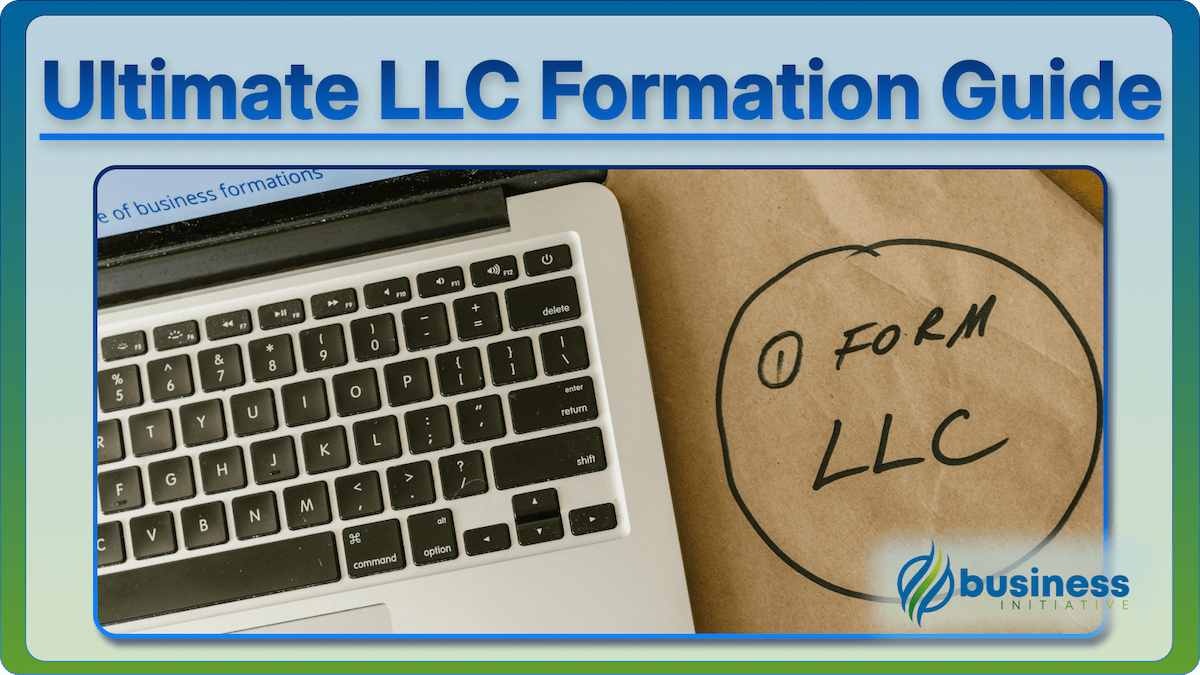You’re making tax mistakes without knowing it. You miss deadlines, don’t reserve cash, or misunderstand requirements. These mistakes create penalties, interest, and cash flow problems that hurt your business.
Mistake awareness solves this by showing common pitfalls new businesses face. It reveals missed deadlines, cash reserve failures, and compliance misunderstandings, which helps you avoid these problems. This awareness prevents costly errors and improves compliance.
This guide highlights common tax compliance mistakes new businesses make, with clear corrective actions to help you avoid penalties and cash flow problems.
We’ll explore missed deadline mistakes, cash reserve failures, registration oversights, filing errors, and how to avoid these problems. By the end, you’ll understand common mistakes and how to prevent them.
 Key Takeaways
Key Takeaways
- Avoid missed deadlines—know all tax due dates and set reminders to prevent late payments
- Reserve cash—set aside tax funds throughout the year to avoid cash shortfalls
- Register properly—register for all required tax accounts before obligations begin
- File correctly—understand filing requirements and file accurately to avoid penalties
- Get help—consult with tax professionals to avoid mistakes and ensure compliance
 Table of Contents
Table of Contents

Why Mistakes Happen
New businesses make tax mistakes because they don’t know requirements. They haven’t dealt with business taxes before, and complexity overwhelms them. This lack of knowledge leads to missed deadlines, incorrect filings, and cash flow problems.
Mistakes happen because tax compliance is complex. Multiple tax types, varying deadlines, and state-specific rules create confusion. Without experience or guidance, it’s easy to miss requirements or make errors. Understanding common mistakes helps you avoid them.
The reality: Most new businesses make at least one significant tax mistake in their first year. They miss deadlines, don’t reserve cash, or misunderstand requirements. Awareness of common mistakes helps you prevent these problems and stay compliant.
Missed Deadline Mistakes
Missed deadlines create penalties and interest. Understanding common deadline mistakes helps you avoid costly penalties.
Not Knowing Due Dates
The mistake:
- Don’t know when taxes are due
- Miss quarterly estimated payments
- Miss sales tax filing deadlines
- Miss payroll tax deposit deadlines
- Discover deadlines only when penalties arrive
Why this matters: Not knowing due dates guarantees missed deadlines. If you don’t know sales tax is due the 20th of each month, you’ll miss it. Understanding due dates is essential for compliance.
Not Setting Reminders
The mistake:
- Don’t set reminders for tax due dates
- Forget about payments until too late
- Rely on memory instead of systems
- Miss deadlines even when you know them
- Create last-minute crises
Why this matters: Not setting reminders leads to missed deadlines even when you know them. If you don’t have systems to remind you, you’ll forget. Setting reminders prevents this problem.
Not Planning for Deadlines
The mistake:
- Don’t plan cash flow around due dates
- Don’t prepare returns in advance
- Wait until deadline to start preparation
- Rush to meet deadlines
- Make errors due to time pressure
Why this matters: Not planning for deadlines creates last-minute crises. If you wait until the deadline to prepare, you might not have time to do it correctly. Planning in advance prevents this problem.
How to avoid: Create a tax calendar with all due dates. Set reminders 2 weeks before each deadline. Plan cash flow and return preparation in advance. This planning prevents missed deadlines and last-minute crises.

Cash Reserve Failures
Cash reserve failures create crises when tax bills arrive. Understanding these mistakes helps you avoid cash shortfalls.
Not Reserving Cash
The mistake:
- Don’t set aside money for taxes
- Spend all revenue without reserving tax funds
- Discover tax bill is higher than expected
- Don’t have cash when taxes are due
- Face cash flow crisis when bills arrive
Why this matters: Not reserving cash guarantees cash shortfalls. If you don’t set aside money for taxes, you won’t have it when bills arrive. This mistake creates cash flow crises and late payments.
Underestimating Tax Amounts
The mistake:
- Don’t estimate tax obligations
- Reserve less than you’ll actually owe
- Discover shortfall when bills arrive
- Don’t account for all tax types
- Underestimate total tax burden
Why this matters: Underestimating tax amounts creates shortfalls. If you reserve $10,000 but owe $15,000, you have a $5,000 shortfall. Understanding true tax burden helps you reserve adequately.
Not Separating Tax Funds
The mistake:
- Mix tax reserves with operating cash
- Spend tax reserves on other expenses
- Don’t have funds when taxes are due
- Can’t track whether reserves are adequate
- Create cash flow problems
Why this matters: Not separating tax funds leads to spending them. If tax reserves are mixed with operating cash, you might spend them on other expenses. Separating funds prevents this problem.
How to avoid: Open separate tax reserve account. Transfer estimated tax amounts regularly. Use our Sales Tax Compliance Tool and Payroll Tax Calculator to estimate obligations. Reserve adequate amounts based on estimates. This approach prevents cash reserve failures.
Registration Oversights
Registration oversights create compliance problems. Understanding these mistakes helps you register properly and on time.
Not Registering for Sales Tax
The mistake:
- Don’t know you need to register
- Don’t register before collecting tax
- Start collecting tax without registration
- Face penalties for unregistered collection
- Discover requirement only when audited
Why this matters: Not registering for sales tax creates compliance problems. If you collect sales tax without registration, you face penalties. Understanding registration requirements prevents this mistake.
Not Registering for Payroll Taxes
The mistake:
- Don’t register before first employee payroll
- Don’t know registration is required
- Start paying employees without registration
- Face penalties for unregistered payroll
- Discover requirement when filing returns
Why this matters: Not registering for payroll taxes creates compliance problems. If you pay employees without registration, you face penalties. Understanding registration requirements prevents this mistake.
Missing Multi-State Registrations
The mistake:
- Don’t know you have nexus in other states
- Don’t register when nexus is created
- Exceed thresholds without realizing
- Face penalties for unregistered operations
- Discover requirements only when notified
Why this matters: Missing multi-state registrations creates compliance problems. If you have nexus in a state but don’t register, you face penalties. Understanding nexus rules prevents this mistake.
How to avoid: Research registration requirements before starting operations. Register for sales tax before collecting. Register for payroll taxes before first payroll. Monitor sales and activities to identify nexus triggers. Register in new states before obligations begin. This approach prevents registration oversights.

Filing Errors
Filing errors create penalties and compliance problems. Understanding common filing mistakes helps you file correctly.
Incorrect Information
The mistake:
- Enter wrong amounts on returns
- Make calculation errors
- Report incorrect revenue or expenses
- File with incomplete information
- Create discrepancies that trigger audits
Why this matters: Incorrect information creates compliance problems. If you report wrong amounts, you might underpay or overpay taxes. Errors can trigger audits and penalties. Accurate filing prevents these problems.
Missing Required Information
The mistake:
- Don’t include all required information
- Miss required schedules or attachments
- Don’t report all income or expenses
- Omit required disclosures
- File incomplete returns
Why this matters: Missing information creates filing problems. If you don’t include required information, returns are rejected or trigger questions. Complete filing prevents these problems.
Filing Late
The mistake:
- File returns after deadlines
- Don’t request extensions when needed
- Face penalties for late filing
- Create compliance problems
- Damage business reputation
Why this matters: Filing late creates penalties and compliance problems. If you file after deadlines, you face penalties even if you pay on time. Timely filing prevents these problems.
Not Filing at All
The mistake:
- Don’t file required returns
- Assume no filing is needed
- Miss filing requirements
- Face severe penalties
- Create serious compliance problems
Why this matters: Not filing creates severe problems. If you don’t file required returns, you face significant penalties and potential legal issues. Understanding filing requirements prevents this mistake.
How to avoid: Use tax software or professionals to ensure accuracy. Double-check all amounts and calculations. Include all required information and schedules. File on time or request extensions. Understand all filing requirements for your situation. This approach prevents filing errors.
How to Avoid Mistakes
Mistake prevention requires systems and knowledge. Building these systems helps you avoid common tax compliance mistakes.
Education and Research
Learn requirements:
- Research tax obligations for your business type
- Understand registration requirements
- Learn about due dates and filing requirements
- Stay updated on tax law changes
- Consult with tax professionals
Why this matters: Education prevents mistakes. If you understand requirements, you’re less likely to miss them. Research and professional guidance help you stay compliant.
Systems and Processes
Build compliance systems:
- Create tax calendar with all due dates
- Set up reminders for deadlines
- Establish reserve account and transfer processes
- Build filing checklists
- Automate where possible
Why this matters: Systems prevent mistakes. If you have processes for compliance, you’re less likely to miss requirements. Automation and checklists help ensure nothing is forgotten.
Professional Help
Get expert guidance:
- Consult with tax professionals
- Use tax software for accuracy
- Outsource compliance where cost-effective
- Get help with complex situations
- Review with professionals regularly
Why this matters: Professional help prevents mistakes. If you work with experts, you benefit from their knowledge and experience. This guidance helps you avoid common pitfalls.
Regular Review
Monitor compliance:
- Review tax obligations quarterly
- Check reserve adequacy regularly
- Monitor for new requirements
- Update systems as business grows
- Stay proactive about compliance
Why this matters: Regular review catches problems early. If you review compliance quarterly, you identify issues before they become serious. This monitoring helps you stay compliant as business grows.
Pro tip: Start with professional consultation to understand your specific tax obligations. Then build systems to manage compliance. Use calculators to estimate obligations and plan reserves. This combination of knowledge, systems, and tools helps you avoid common mistakes.
Your Next Steps
Avoiding tax compliance mistakes prevents penalties and cash flow problems. Learn common mistakes, build systems to prevent them, and get professional help to ensure compliance.
This Week:
- Review common tax compliance mistakes to understand pitfalls
- Create tax calendar with all due dates for your business
- Set up tax reserve account and establish transfer processes
- Research registration requirements for your situation
This Month:
- Register for all required tax accounts
- Set up reminders for all tax due dates
- Use calculators to estimate tax obligations
- Consult with tax professional to validate your understanding
Going Forward:
- Review tax compliance quarterly to catch problems early
- Update systems as business grows and requirements change
- Monitor for new tax obligations as you expand
- Use professional help for complex situations
Need help? Check out our Sales Tax Compliance Tool for sales tax calculation, our Payroll Tax Calculator for payroll tax estimation, our tax obligations map for understanding requirements, and our tax estimation guide for planning payments.
Stay informed about business strategies and tools by following us on X (Twitter) and signing up for The Initiative Newsletter.
FAQs - Frequently Asked Questions About Common Tax Compliance Mistakes by New Businesses (and How to Avoid Them)

Why do most new businesses miss tax deadlines in their first year?
New owners don't know all their tax due dates, rely on memory instead of systems, and underestimate how many different tax obligations they have.
Learn More...
First-time business owners face a confusing mix of federal, state, and local tax deadlines—quarterly estimated payments, monthly sales tax filings, payroll tax deposits, and annual returns. Most don't realize how many separate deadlines exist until penalties arrive. They also rely on memory instead of building calendar systems with reminders. The fix is straightforward: create a comprehensive tax calendar with every due date, set reminders two weeks before each deadline, and plan your cash flow and return preparation in advance so you're never scrambling at the last minute.
How much cash should a new business set aside for taxes?
Set aside 25-30% of revenue in a separate tax reserve account and adjust based on your specific tax obligations as you learn your actual rates.
Learn More...
The exact amount depends on your entity structure, income level, and state, but 25-30% of revenue is a safe starting point for most small businesses. The critical mistake isn't the exact percentage—it's not reserving anything at all. Open a separate bank account specifically for tax reserves and transfer funds regularly, either weekly or with each revenue deposit. Use tax calculators to estimate your sales tax, payroll tax, and income tax obligations so you can refine your reserve percentage. Never mix tax reserves with operating cash, because you'll inevitably spend them on other expenses.
What sales tax registration mistakes do new businesses commonly make?
Many new businesses don't realize they need to register before collecting sales tax, miss multi-state nexus triggers, or start collecting tax without proper registration.
Learn More...
The most common sales tax registration mistakes are: not knowing registration is required at all, collecting sales tax without being registered (which creates legal liability), failing to recognize when online sales create nexus in other states, and discovering the requirement only during an audit. Research your state's sales tax requirements before your first sale. If you sell online, understand economic nexus thresholds—most states require registration once you exceed a certain dollar amount or transaction count in their state. Register before you start collecting, not after.
What are the most costly filing errors new businesses make on tax returns?
Entering wrong amounts, omitting required schedules, filing late without requesting extensions, and not filing required returns at all.
Learn More...
Filing errors range from minor to severe. Calculation errors and incorrect amounts can trigger audits and under/overpayment issues. Missing required schedules or attachments causes returns to be rejected. Filing late triggers automatic penalties even if you pay on time—and not filing at all creates the most severe penalties and potential legal issues. Many of these errors come from rushing to meet deadlines rather than preparing in advance. Use tax software or a professional to ensure accuracy, double-check all amounts against your records, and file on time or request an extension if you need more preparation time.
How does missing multi-state nexus create tax compliance problems?
If you exceed a state's sales or activity threshold without registering, you owe back taxes plus penalties and interest from the date nexus was established.
Learn More...
Multi-state nexus is triggered when your business activity in another state exceeds certain thresholds—typically $100,000 in sales or 200 transactions for economic nexus. Many new businesses selling online cross these thresholds without realizing it. Once nexus exists, you're legally required to collect and remit sales tax in that state. If you don't register and comply, you accumulate liability that includes the uncollected tax, penalties for non-compliance, and interest. The longer it goes undetected, the larger the liability grows. Monitor your sales by state monthly to catch nexus triggers early.
What systems should a new business build to prevent tax compliance mistakes?
Create a tax calendar with reminders, open a separate tax reserve account, build filing checklists, automate where possible, and schedule quarterly compliance reviews.
Learn More...
Effective tax compliance requires four interlocking systems. First, a tax calendar with every deadline and automated reminders set two weeks in advance. Second, a separate tax reserve account with regular transfers based on estimated obligations. Third, filing checklists for each tax type that ensure you include all required information and schedules. Fourth, quarterly reviews where you assess compliance status, check reserve adequacy, and identify any new obligations as your business grows. Supplement these systems with professional guidance—especially in your first year—and use tax calculators to estimate obligations accurately.
Sources & Additional Information
This guide provides general information about common tax compliance mistakes. Your specific situation may require different considerations.
For sales tax calculation, see our Sales Tax Compliance Tool.
For payroll tax calculation, see our Payroll Tax Calculator.
Consult with tax professionals for advice specific to your situation.


